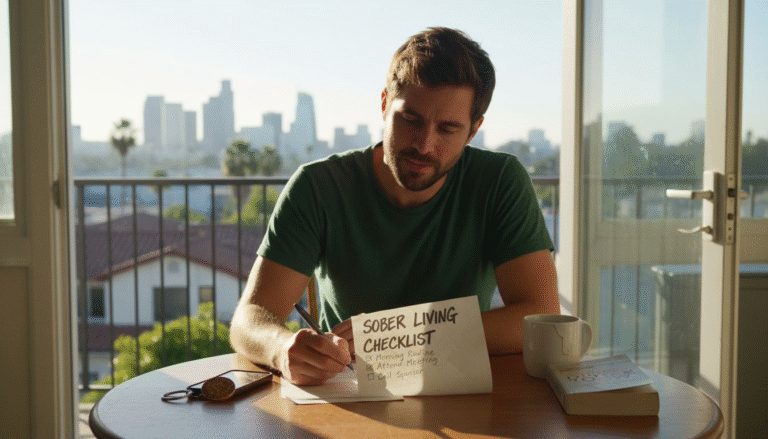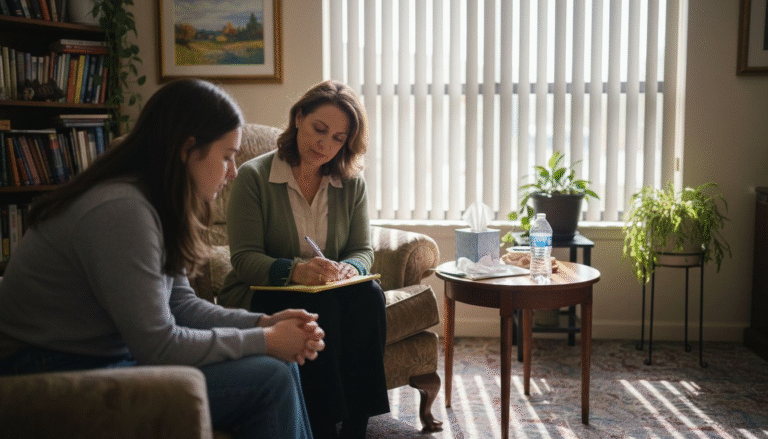Whether your visit to a recovery center is voluntary or not, aiming for sobriety is never a bad idea. For those who are mandated by the courts to receive treatment, it might prove difficult to navigate the court system. This is why you are also assigned a court liaison. If you are unsure what that is, no worries. You are not alone. Continue reading to understand what a court liaison is, what they do, and how they can benefit you.
What Is a Court Liaison?
A court liaison is a trained professional who acts as a middleman between the courts, the recovery center, and the client. The court liaison is not a lawyer. Instead, they are advocates for their clients. While they cannot offer legal advice, they are highly educated and can offer support and attend court with their clients.
Also known as boundary spanners or court navigators, these professions provide a bridge of communication between behavioral health providers and the court. When a person has been mandated by the courts to get behavioral therapy or another service at a recovery center, they are assigned a court liaison.
While court liaisons work with a variety of people, most of their work is done with ex-offenders who must stay in close view of law enforcement. Court liaisons are trained to do their jobs well. They also have backgrounds in a wide variety of criminal justice fields. They generally have criminal justice degrees that cover the following topics.
- Courts and prosecution processes
- Ethics
- Police administration procedures
This background allows them to be useful in preparing documents and advocating for their clients. They also have the option to further their education so they can serve their clients better.
What Are the Duties of a Court Liaison?
Court liaisons wear many hats. They are responsible for ensuring that the court process runs smoothly, which can come with many duties.
The first thing that these professionals do is manage all the administrative tasks that come with the court process. This includes coordinating logistics like schedules and contacts. They ensure that everyone involved in the client’s case is on the same page and that communication is smooth throughout all channels. Some other administrative tasks include:
- Coordinating witness schedules,
- Serving subpoenas and keeping track of subpoenas served,
- Completing, verifying, and submitting all official court documents.
While they do not offer legal advice, they are educated about local laws and procedures. They can offer this information to clients who appear in court on minor charges. Some examples of this include the following.
- How to register as a sex offender
- How to apply for government programs and benefits
Additionally, they can help with preparing for testimony, writing press releases, and interpreting testimony in court proceedings. This can be incredibly beneficial for individuals who are unfamiliar with court proceedings and have anxieties about their future.
A court liaison is necessary to make sure that everything runs as efficiently as possible. They make sure that everything is on schedule and done in a timely manner.
What Are Some Benefits of Working With a Court Liaison?
The duties of court liaisons allow clients to have a smoother journey through the court system. Let us explore the many benefits of court liaisons.
More Efficient Court Process
A court liaison role is essential because these professionals ensure that the court process runs smoothly. Without court liaisons, courts would have trouble staying on track without falling behind. There would be long waits for the necessary paperwork, and there would be a lot of inefficiencies in the scheduling of court proceedings. Not only are they beneficial to law enforcement and other agencies, but they are also helpful to their clients.
Whether a client is a victim or an offender, they ensure that documents are up-to-date and that attorneys and everyone in the process are tended to in a timely manner.
Seamless Communication
In every other industry, a liaison is responsible for seamless communication. This remains the case for court liaisons. One of the many responsibilities of the court liaison is to share information between law enforcement, court officials, treatment centers, attorneys, and others who are associated with a case.
This is one of the best advantages of a court liaison to a client. Without a court liaison, individuals would have to do all these things on their own and without guidance. If this was the case, not only would the court system fall behind, but clients would not have a chance at a fair trial.
Court Liaisons Are for Everyone!
Even juvenile offenders are assigned a court liaison. A juvenile court liaison has the same purpose as an adult court liaison. They are even more involved in the process than others. They work with even more people. This is because juveniles often have more people involved in their processes.
A juvenile court liaison also works with school districts and is responsible for more of the case management. They coordinate services like counseling, legal help, and educational services for juvenile clients.
Get Help From a Court Liaison at Glendora Recovery Center
If you still have questions about what a court liaison is, contact us at Glendora Recovery Center. There is no reason that you should navigate the court system all on your own. Not only will our court-ordered liaison ensure that you are complying with all court orders, but they will also submit proof of enrollment, progress reports, and a certificate of completion to the courts or probation.
Not only do our court liaisons advocate for you, but they also ensure that your court proceedings are seamless. You have enough on your plate to be stressed about, let your court liaison take some of that responsibility away. At Glendora Recovery Center, we’re here to support you every step of the journey towards a life of sobriety. Whether you choose to visit on your own or are court-ordered, we are glad to help. You are not alone. Let us help you take back control and live a happier and more fulfilling life.



